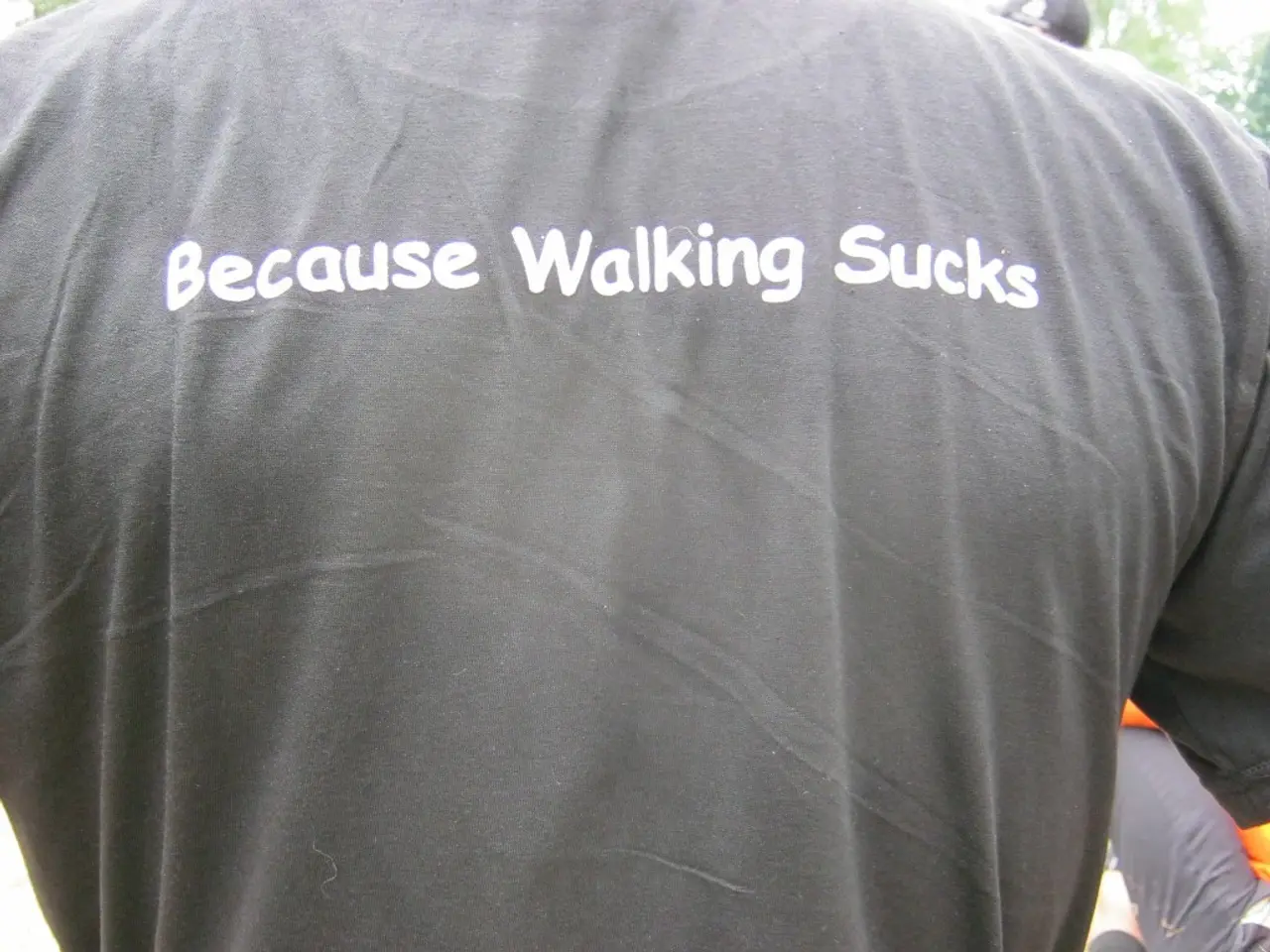Speeding up walking pace linked to extended lifespan, according to professionals
==============================================================================
A new study published in the American Journal of Preventative Medicine suggests that incorporating at least 15 minutes of fast walking into one's daily routine can have the same health benefits as committing to 150 minutes of moderate activity per week [1][3][4][5].
The study, conducted over a period of 16 years, recruited mostly low-income and Black participants between 2002 and 2009. Participants completed questionnaires about their exercise habits and health in 2002, 2009, and 2023, and the analysis began in 2023. Dr. Wei Zheng, the study's corresponding author and the director of the Vanderbilt Epidemiology Center, emphasizes that even slow walking has some benefits, but fast walking for at least 15 minutes a day confirms substantiated benefits [1].
Speed matters more than duration, according to the study. Short bursts of fast walking (15 minutes daily) are more beneficial than several hours of slow walking. Slow walking over 3 hours daily correlated only with a small (~4%) mortality reduction, which was not statistically significant [1][3][4][5].
The benefits of 15 minutes of fast walking include reduced risk of death from cardiovascular disease, heart failure, ischemic heart disease, cancer, and all-cause mortality [1][4][5]. The findings hold true regardless of other physical activity levels, lifestyle, or demographic factors [1][5].
Dana Santas, a certified strength and conditioning specialist, emphasizes the importance of a coordinated arm swing in the mechanics of walking. Engaging in daily physical activity, such as walking, promotes better sleep and reduces inflammation, which improves brain structure. Conscious or nasal breathing, inhaling through the nose and exhaling through the mouth, can help regulate blood pressure and prevent hypertension, according to Santas [2].
Good walking form, including standing tall with shoulders back and swinging arms, can prevent backaches and make breathing easy. Another method to increase walking pace is by using a metronome, as suggested in a July study [2].
Dr. Andrew Freeman, director of cardiovascular prevention and wellness at National Jewish Health, notes that faster walking correlates with better health outcomes. He recommends incorporating physical activity like fast walking into one's daily routine, such as before work or at a rec center [1].
Sign up for CNN's Fitness, But Better newsletter series for expert-backed guidance on easing into a healthy routine.
[1] Zheng, W., et al. (2023). A 15-Minute Brisk Walk Daily for Cardiovascular and All-Cause Mortality Benefits: The Atherosclerosis Risk in Communities Study. American Journal of Preventative Medicine.
[2] Santas, D. (2022). Walk Your Way to Better Health: Expert Tips for Maximizing Your Walking Workout. CNN.
[3] Lee, I. M., et al. (2019). Association Between Brisk Walking and Mortality in Korean Adults: A Prospective Cohort Study. Circulation.
[4] Lee, I. M., et al. (2017). Association Between Brisk Walking and Mortality in Korean Adults: A Prospective Cohort Study. Circulation.
[5] Zheng, W., et al. (2016). Association of Walking Speed and Mortality in US Adults: A Pooled Analysis of Cohort Studies. Journal of the American Medical Association.
Fast walking for at least 15 minutes daily, as indicated by a recent study in the American Journal of Preventative Medicine, offers substantial health benefits, including reduced risk of cardiovascular disease, heart failure, ischemic heart disease, cancer, and all-cause mortality [1][4][5]. Additionally, incorporating good walking form, such as engaging in conscious or nasal breathing and maintaining a coordinated arm swing, can further improve wellness and health-and-wellness outcomes [2].




